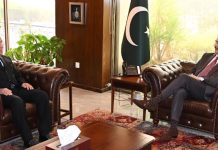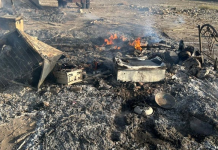Lahore, JAN 20 /DNA/ – The Ferozepur Road Industrial Association (FRIA) has appealed the government to take prompt measures to bring down the production costs for industries to enable them to compete in the international market, as the industrialists are currently having difficulty competing in the global market because of rapid increase in production costs.
The FRIA senior vice chairman and PIAF EC member Shahbaz Aslam said that the high cost of production is not good for our exports. The cost of production is a major factor, which makes an industry stand out among competitors in the world market, he explained.
Shahbaz Aslam said that high energy tariffs, shortage of fuel for machines, high rate of taxes, and lack of skilled labour are the main reasons behind the increase in the cost of production. He expressed concern that the reduction in industries’ contribution to Pakistan’s gross domestic product (GDP) is a worrying trend. Manufacturing and production industries have the potential to significantly impact economic growth by reducing unemployment in the country. The government needs to take solid steps to make doing business easier, he added.
Shahbaz Aslam said lack of research and development (R&D) is one of the major reasons behind the increase in the cost of production in any industry.
Sometimes we have the resources, but we make poor decisions. A poor decision means poor practices of work execution, he added.
Shahbaz Aslam said that R&D could help in the provision of valuable technologies, business models, and designs for the industry. Implementation of modern techniques or work practices can increase production and also reduce its costs, he added.
He urged the government to solve their problems on a priority basis in consultation with the traders. FRIA’s mission was to create a stable economy and prosperous business community, he added.
He also called for promoting industrialization and enhancing exports through lowering the cost of production, paying early refunds to solve liquidity crunch and relaxing import policy for industrial raw material.
He said the business community was facing problems like unannounced load shedding, parking, departmental proceedings, overbilling and expensive electricity and gas in the markets.
He asked the government to appreciate the role of trade, industry and exporters, providing mass employment to the jobless population of the country.
Shahbaz Aslam that both external and internal issues lead to an increase in cost of production. He said Pakistan’s furniture industry is struggling in the international market due to challenges such as high inflation, political instability, increased power tariff, rising fuel costs, energy shortages, and lack of R&D.
An effective strategy is needed to improve the performance of the industrial sector. The government should facilitate exporters by providing a level playing field to them in terms of business costs, particularly in utility pricing, he suggested. Pakistan Industrial and Traders Associations Front (PIAF) senior leader said Pakistan’s economy, particularly small and medium-sized enterprises (SMEs), is struggling to cope with the current economic crunch, and needs support. Rather than providing subsidies or waivers, the industries are being burdened through rising production cost. The burden of surging oil prices in the international market is immediately transferred to consumers by the government, but the process of reducing prices is always very slow, he noted.

















